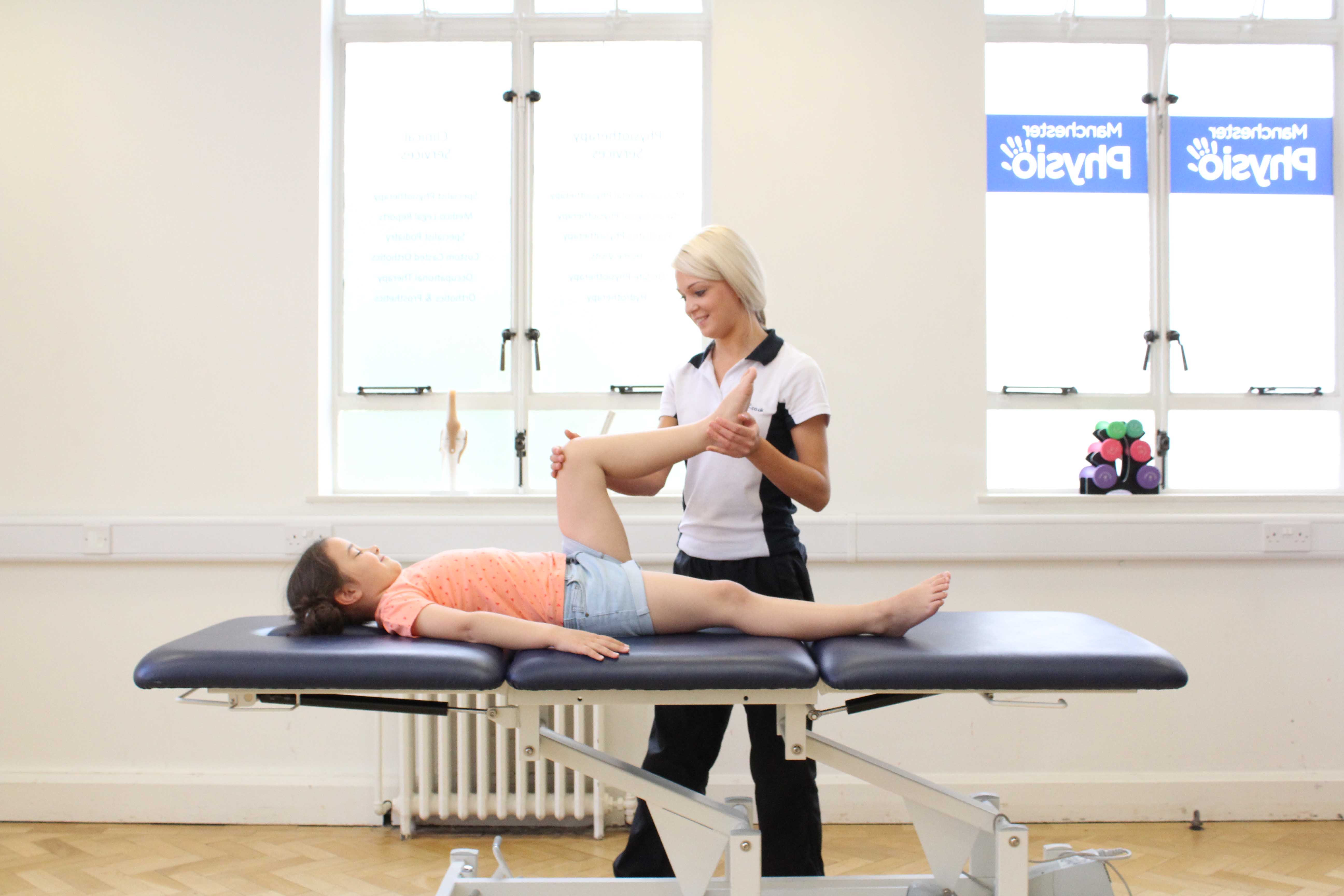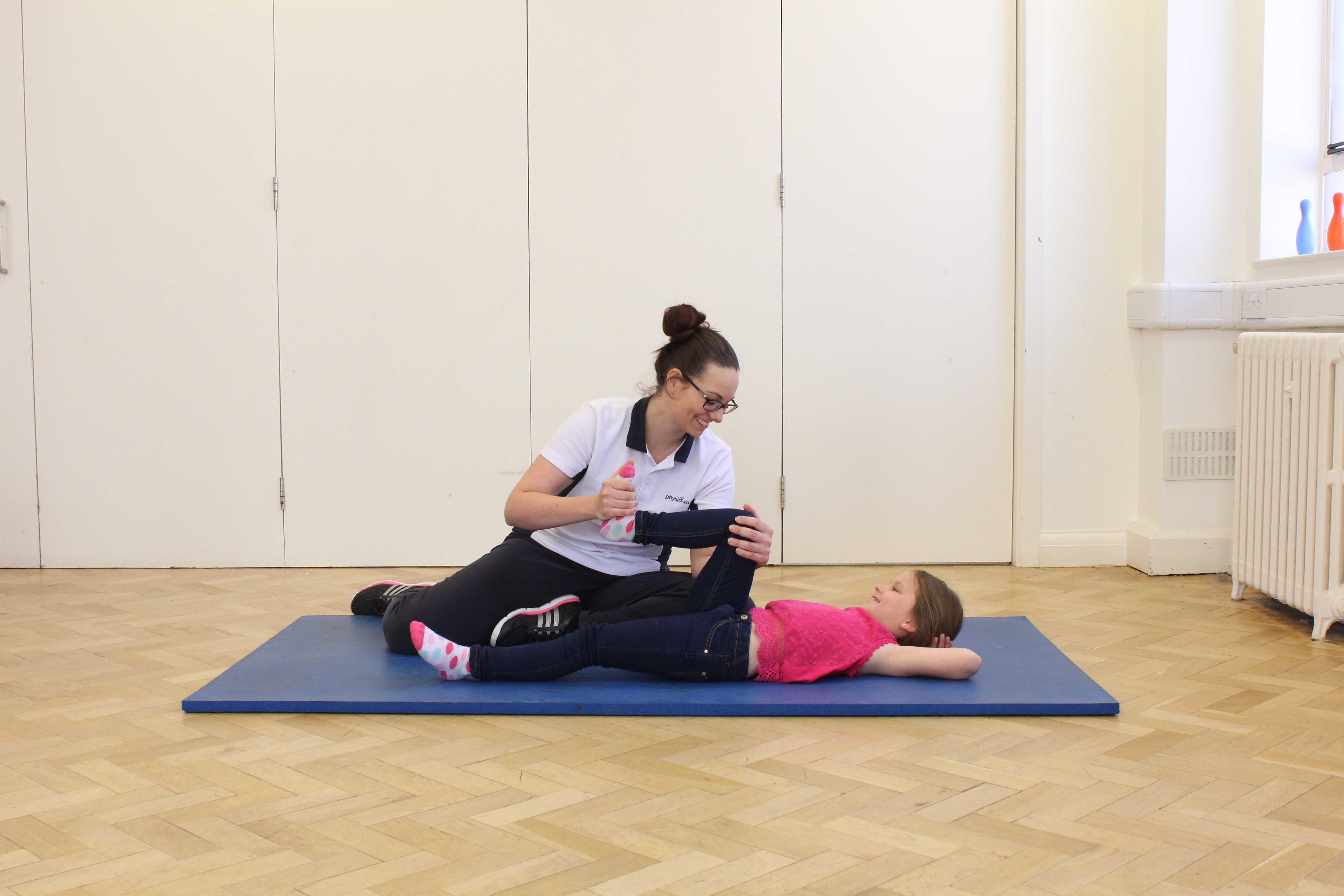What is Dyspraxia?
Dyspraxia is characterised by difficulty with planning, organisation and execution of movement due to poor processing of information in the brain. Dyspraxia in toddlers slows achievement of developmental milestones and ability with gross motor skills such as crawling and walking and fine motor activities such as gripping objects.
 Above: Upper limb mobility and strengthening exercises assisted by paediatric physiotherapist
Above: Upper limb mobility and strengthening exercises assisted by paediatric physiotherapistWhat causes Dyspraxia?
It is not clear what causes dyspraxia however risk factors for developing dyspraxia may include:
- being born prematurely (before week 37 of pregnancy)
- being born with a low birth weight
- having a family history of dyspraxia
- the mother drinking alcohol, smoking or taking illegal drugs while pregnant
What are the symptoms of dyspraxia?
Dyspraxia in toddlers can affect different areas of development including speech and language, fine motor skills and gross motor skills:
Speech and Language Skills
- Difficulty making sounds, sequencing sounds and forming words in sentences
- Difficulty controlling breathing during speech
- Slower development of language
- Problems with feeding, messy eating
- Difficulty learning the basic patterns of movement, and establishing grip strength
- Difficulty with tasks requiring dexterity and fine coordination
Gross Motor Skills
Development of gross motor skills in toddlers include the acquisition of major milestones such as sitting, crawling and walking running. Dyspraxia may cause:
- Slower acquisition of developmental milestones e.g. learning to sit, crawl, walk
- Poor balance and timing, tripping over easily
- Poor coordination and sequencing of movements
- Clumsiness and poor spatial awareness
- Problems picking up simple objects
- Problems learning left from right
- Slower development of laterality i.e. right or left handedness
- Poor concentration, easily distracted
- Difficulty following instructions
- Sensory integration dysfunction leading to oversensitivity to stimuli such as light, sound, touch, temperature
- High levels of motor activity – difficulty sitting still
- Limited creative and imaginative play
- Easily distressed and emotional, increased irritability
Diagnosis of Dyspraxia
Diagnosis of dyspraxia can be made by a physiotherapist, occupational therapist or paediatrician. A thorough assessment for dyspraxia typically includes establishing a history of developmental milestones, motor skill screening activities and a comparison to normal rates of development to establish areas of difficulty.
 Above: Upper limb mobility and co-ordination exercises assisted by a paediatric physiotherapist
Above: Upper limb mobility and co-ordination exercises assisted by a paediatric physiotherapistPhysiotherapy for Dyspraxia
Toddlers with dyspraxia will benefit from specialist paediatric physiotherapy.
Physiotherapy treatment at Physio.co.uk will help your child reach their maximum potential with everyday tasks and activities at home or nursery.
Paediatric physiotherapy will improve your toddler’s physical function as well as organisational ability such as concentration, accuracy and fine motor control.
An initial assessment will see if your child is at an age appropriate level and if they have reached specific physical milestones (i.e. rolling, lying, sitting, standing and walking). Information will also be gathered on difficulties at nursery or home.
At Physio.co.uk, physiotherapy treatment will depend on your childs individual needs and stage of development but may include:
- Activities to improve posture in lying, sitting and standing.
- Exercises to improve balance and coordination involving games making them fun and engaging.
- Exercises to increase muscle strength in the trunk and the shoulders which will make daily tasks and sporting activities easier to achieve. Strengthening of the pelvic girdle muscles will improve balance and activities such as kicking a ball.
- Activities to improve fine motor control such as holding objects and handwriting.
- Exercises to increase self confidence and self esteem. It is important for your child to engage in new activities and feel successful as this will lead to better interaction with peers.
- Practising functional activities to improve organisational ability and concentration.
- Advice about how to continue treatment at home to ensure significant long-term improvements.
Our paediatric physiotherapists at Physio.co.uk can provide treatment across Greater Manchester and Cheshire. We will provide assessment and treatment at our clinic, your child’s nursery or at your home for your convenience.
If you would like more information on physiotherapy for dyspraxia, or to book an appointment please call 0330 088 7800, or book online today!

 0330 088 7800
0330 088 7800

































